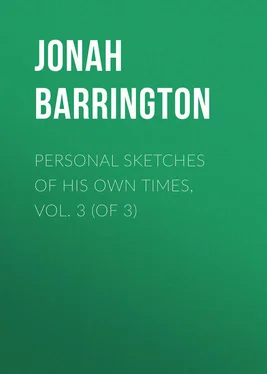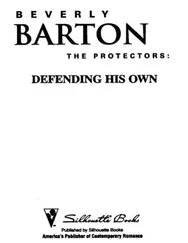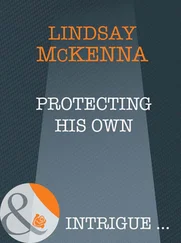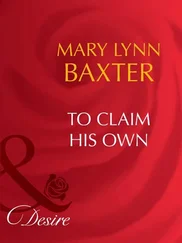Jonah Barrington - Personal Sketches of His Own Times, Vol. 3 (of 3)
Здесь есть возможность читать онлайн «Jonah Barrington - Personal Sketches of His Own Times, Vol. 3 (of 3)» — ознакомительный отрывок электронной книги совершенно бесплатно, а после прочтения отрывка купить полную версию. В некоторых случаях можно слушать аудио, скачать через торрент в формате fb2 и присутствует краткое содержание. Жанр: foreign_antique, foreign_prose, на английском языке. Описание произведения, (предисловие) а так же отзывы посетителей доступны на портале библиотеки ЛибКат.
- Название:Personal Sketches of His Own Times, Vol. 3 (of 3)
- Автор:
- Жанр:
- Год:неизвестен
- ISBN:нет данных
- Рейтинг книги:4 / 5. Голосов: 1
-
Избранное:Добавить в избранное
- Отзывы:
-
Ваша оценка:
- 80
- 1
- 2
- 3
- 4
- 5
Personal Sketches of His Own Times, Vol. 3 (of 3): краткое содержание, описание и аннотация
Предлагаем к чтению аннотацию, описание, краткое содержание или предисловие (зависит от того, что написал сам автор книги «Personal Sketches of His Own Times, Vol. 3 (of 3)»). Если вы не нашли необходимую информацию о книге — напишите в комментариях, мы постараемся отыскать её.
Personal Sketches of His Own Times, Vol. 3 (of 3) — читать онлайн ознакомительный отрывок
Ниже представлен текст книги, разбитый по страницам. Система сохранения места последней прочитанной страницы, позволяет с удобством читать онлайн бесплатно книгу «Personal Sketches of His Own Times, Vol. 3 (of 3)», без необходимости каждый раз заново искать на чём Вы остановились. Поставьте закладку, и сможете в любой момент перейти на страницу, на которой закончили чтение.
Интервал:
Закладка:
I accepted his invitation: we had most excellent cheer, and were busily employed in praising the vintage of 1790, when a sealed packet, like a government dispatch, was brought in by the baronet’s old porter. We all thought it was something of consequence, when Sir William, impatiently breaking the seal, out started a very beautiful painting on parchment or vellum, gilded and garnished with ultramarine, carmine, lapis caliminaris, and all the most costly colours.
“Heyday!” said Sir William, staring: “what the deuce have we here? Hollo! Christopher – Kit – I say Kit – who – who – or where the devil did this come from?”
“By my sowl, my lord,” replied Christopher, “I dunnough who that same man was that fetched it; but he was neat an’ clean, and had good apparel on his body, though it was not a livery like mine, my lord.”
“Did – did – he say nothing, Kit?” said Sir William, surprised.
“Oh yes, plenty my lord; he desired me on my peril to give the thing safe and sound to your lordship’s own self. He swore, like any trooper, that it was as good as a ten thousand pound bank of Ireland note in your pocket any how. So I curdled up at that word, my lord; I towld him plain and plump he need not talk about peril to me; that I was nothing else but an honest sarvant; and if the said thing was worth fifty pounds in ready money it would be as safe as a diamond stone with me, my lord.”
“And was that all, Christopher?” said Sir William.
“Oh no, my lord,” replied Kit, “the man grinned at me all as one as a monkey; and said that, maybe, I’d be a master myself one of these days. ‘By my sowl, maybe so, Sir,’ says I, ‘many a worse man arrived at being an attorney since I came into service;’ and at the word, my lord, the said man held his hand quite natural, as if he’d fain get something into it for his trouble; but the devil a cross I had in my fob, my lord, so I turned my fob inside out to show I was no liar, and he bowed very civilly and went out of the street-door, laughing that the whole street could hear him; though I could swear by all the books in your lordship’s office, that he had nothing to laugh at: and that’s all I had act or part in it, my lord.”
Sir William now seemed a little puzzled, desired Christopher to be gone, and throwing the painting on the table, said, “I didn’t want any arms or crests. I had very good ones of my own, and I don’t understand this matter at all. My family had plenty of arms and crests since King William came over the water.”
“So have mine – a very nice lion rampant of their own, my lord,” said her ladyship, as excellent a woman as could be: “I’m of the Rawins’s,” continued she, “and they have put me into your arms, Sir William: – look!”
“Oh that is all as it should be, my dear,” said his lordship, who was a very tender husband. But regarding it more closely, her ladyship’s colour, as she looked over his shoulder, mantled a few shades higher than its natural roseate hue, and she seemed obviously discontented.
“I tell you, Sir William,” said she, “it is a malicious insult; and if you were out of the mayoralty, or my boy, Lovelace Steemer, had arrived at full maturity, I have no doubt the person who sent this would be made a proper example of. I hope you feel it, Sir William.”
“Feel! – feel what, my love?” said Sir William, calmly, he being not only a courteous, but a most peaceful citizen. “Don’t be precipitate, my darling! – let us see – let us see.”
“See!” said her ladyship, still more hurt, “ay, see with your own eyes!” pointing to the insult : “the fellow that painted that (whoever he is) has placed a pair of enormous horns just over your head, Sir William! – a gross insult, Sir William – to me, Sir William – indeed to both of us.”
I was much amused, and could not help observing “that the horns were certainly enormous horns, to be sure; but as the joke must be intended against Sir William himself – not her ladyship – I hope – ” said I.
“No, no, Sir Jonah,” said the lady interrupting me.
“I see now,” said Sir William, looking at the bottom, “this comes from Ulster.”
“Read on, Sir William,” said I, “read on.”
“Ay, Ulster king-at-arms: and who the deuce is Ulster king-at-arms ?”
“I suppose,” said I, “some blood relation to the Escheator of Munster, and – ”
“And who – who the d – l is the Escheator of Munster ?” said Sir William (who had never vacated a seat in the Irish Parliament).
“He is of the same family as the Chiltern hundreds,” quoth I.
“Chiltern hundreds! Chiltern hundreds! By Jove, they must be an odd family altogether,” said the Lord Mayor, still more puzzled, his lady sitting quite silent, being now altogether out of her depth, – till a small letter, to that moment overlooked, was taken up and read by the Lord Mayor, and was found to be connected with a bill furnished, and wanting nothing but a receipt in full to make it perfect. The countenance of Sir William now became less placid. It proved to be a very proper and fair intimation from his Majesty’s herald-at-arms, to the effect that, as the baronetcy originated with the Jubilee, and was granted in honour of King George the Third having ruled half a century, an amplification of the new baronet’s heraldry by an additional horn, motto, ribbon, &c., was only a just tribute to his Majesty’s longevity! and, in truth, so properly and professionally was the case stated, that Ulster’s clear opinion may be inferred that every family in the empire might, in honour and loyalty, take a pair of horns, motto, and ribbon, as well as Sir William, if they thought proper so to do, and on the same terms.
How the matter was finally arranged, I know not; but the arms came out well emblazoned and duly surmounted by a more moderate and comely pair of horns; and Sir William, in regular season, retired from office with due éclat , and in all points vastly bettered by his year of government. Though he retired, like Cincinnatus – but not to the plough – Sir William reassumed his less arduous duties of committing rogues to Newgate – long corks to Chateau Margaux – light loaves to the four Marshalsea Courts – and pronouncing thirteen-penny decrees in the Court of Conscience: 2 2 Every lord mayor of Dublin becomes judge of a “Court of Conscience” for twelve months after the expiration of his mayoralty; each decree costing a shilling; many of the causes are of the most comical description; but never would there have arisen so great a judge as Sancho Panza of Barataria, from presiding in our Court of Conscience. I cannot omit stating, that Sir William, when lord mayor, gave the most numerous, brilliant, and complete masquerade ever seen in Dublin, or, I believe, any where else. There were fourteen or fifteen hundred persons, and I am sure not more than one hundred dominoes; every body went in character, and every person tried to keep up the character he adopted. Ireland, of all places in the world, is, perhaps, best adapted to a masquerade, as every Irishman is highly amused when he can get an opportunity of assuming, by way of freak, any new character. It was the custom for the mob, on those occasions, to stop every carriage, and demand of each person, “What’s your character?” I was dreadfully tired of them in the street on the night in question; but fairly put into good-humour by the jeu d’esprit of a mob-man, who opened the carriage-door. After I had satisfied him as to character, he desired to know, where I was going? “Shut the door,” said I. “Ah, but where are you going?” I was vexed. “I’m going to the Devil ,” said I. “Ough, then, God send you safe!” replied the blackguard.
every one of which occupations he performed correctly and zealously, to the entire satisfaction of the nobility, clergy, gentry, and public at large, in the metropolis of Ireland.
Интервал:
Закладка:
Похожие книги на «Personal Sketches of His Own Times, Vol. 3 (of 3)»
Представляем Вашему вниманию похожие книги на «Personal Sketches of His Own Times, Vol. 3 (of 3)» списком для выбора. Мы отобрали схожую по названию и смыслу литературу в надежде предоставить читателям больше вариантов отыскать новые, интересные, ещё непрочитанные произведения.
Обсуждение, отзывы о книге «Personal Sketches of His Own Times, Vol. 3 (of 3)» и просто собственные мнения читателей. Оставьте ваши комментарии, напишите, что Вы думаете о произведении, его смысле или главных героях. Укажите что конкретно понравилось, а что нет, и почему Вы так считаете.












